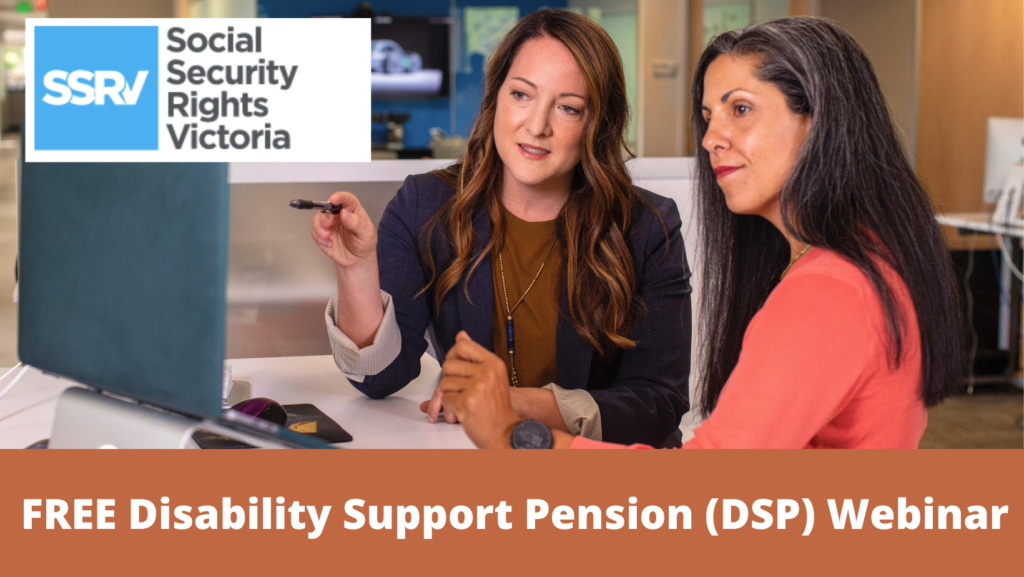When Sienna contacted the SSRV Legal Assistance Line for advice, she was stressed and overwhelmed. Struggling to find a rental property for herself and her children while existing on social security payments, for two years Sienna had been forced to live in the same house as her violent ex-partner. Now, she had been been informed of a Centrelink debt she said was incorrectly issued and would take her years to repay.
As single mother, Sienna had been receiving Parenting Payment Single despite having been living separated under the same roof with her ex-partner, and the recent Centrelink decision had deemed that for two of the years she had been receiving the payment she had been in a relationship, and she would now have to repay those payments. She had also had her Parenting Payment Single cut and was moved to the Jobseeker payment, at a much lower rate.
In addition to her Centrelink debt, Sienna also had debts totaling tens of thousands of dollars, that she said she was coerced into accumulating by her ex-partner.
Yet, when she disclosed her problems with SSRV’s financial counsellor Graeme Parsons, it soon became clear that her debts were the least of her problems. Sienna and her children were about to become homeless.
“Centrelink issues rarely happen in a vacuum,” says Graeme. “Assisting someone to appeal a Centrelink decision might solve that issue, but not necessarily the overall problem.”
SSRV staff regularly engage with clients who are experiencing a multiple, inter-connected and compounding difficulties. That is why the organisation sought and was so pleased to be granted funding for the Integrated Service Project, which is now in its fourth year. SSRV’s community lawyers and in-house financial counsellor work together, and with financial counsellors employed by other agencies, to improve client outcomes.
When a person calls SSRV to seek assistance regarding a Centrelink problem, SSRV’s front-line and legal team make an assessment of whether the person may benefit from meeting with the financial counsellor. If so, and the person agrees, they may be offered an appointment with the in-house financial counsellor or referred to the National Debt Help Line.
When Sienna contacted SSRV, the lawyer she spoke to identified that Sienna’s financial problems extended beyond her Centrelink debt, and connected her with Graeme, who worked with Sienna to understand her financial and related problems.
“Working through the detail of a person’s finances, behaviours and current situation is often the best means of understanding what needs to happen next,” explains Graeme.
Sienna’s immediate need was to find housing. Once that was secured, with SSRV’s support she was able to address how her financial situation and address the Centrelink debt that had resulted from her ex-partner’s abuse, including appealing the Centrelink decision to raise the debt.
Sienna says that having a lawyer and financial counsellor working together meant that she was able to get her financial state back in order more quickly and painlessly than having to deal with multiple organisations, and without having to relive her trauma by being forced to repeatedly tell her story.
In addition to his work with SSRV clients, Graeme and the Project team works with other financial counselling services to raise awareness of the big picture financial problems facing disadvantaged people and areas where changes to laws or processes, especially those relating to income support payments, could make a real difference.
Speaking about the provision of integrated services, Graeme says “It’s about the lawyers picking up on related issues being experienced by clients and referring them through to a financial counsellor who may help them address these needs. Often that involves working with creditors, and saying in Sienna’s case for example, yes Sienna did take out this loan for a motorcycle – but what does it tell you that she doesn’t have a motorcycle license? She was in an abusive relationship with man who already owns two other motorcycles and who pressured her to do so. Can you take this into consideration?”
SSRV’s Integrated Service Project, says Graeme, is all about social security lawyers and financial counsellors working together in a person-centred way.
“We work as an integrated service,” says Graeme. “People who contact SSRV are often already feeling isolated, alone and without allies – when they call us, we don’t insist they isolate their issues.”





